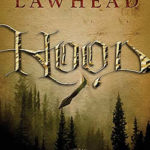Fantasy, Theology, and The Depiction Of Evil

This morning on Facebook, author and friend Mike Duran posed a question about the theology of speculative fiction. Theology? Indeed. Stories say something. Something meaningful or frivolous, something true or false, something obvious or thought-provoking, something about God or about His world and the people in it.
My contention is that fantasy, and other speculative genres, can do more in the realm of theology than can “reality” fiction. I presented my case for fantasy showing evil in an article published in the first iteration of Speculative Faith, some eight years ago. Nothing’s changed in my thinking on the subject. Here is that article.
“Reality fiction” (as opposed to speculative) requires evil to show up in a known form. The protagonist faces opposition, from things outside himself and from his own wayward heart. The inward conflict in fantasy may look much the same as that in reality fiction, but the external conflict may be considerably different. In this difference lies fantasy’s strength.
External conflicts in reality fiction center on day to day problems: a cheating spouse, job stress, disobedient children, and such. Or on day to day disasters: child abuse, pornography, Internet predators, drugs abuse, serial marriage, same sex marriage, child sex slaves, gang violence, homelessness.
For argument’s sake, suppose a Christian author decides to write about child sex slaves. Does he present Christ as the answer to the conflict he paints? Or as a peripheral subject? Does he show Christ as the comforter instead of the answer? Who then saves the day? Some social service or governmental agent? Or Christian? Can the author realistically show the character’s Christianity as the motive for what he does to solve the conflict?
And what about a story dealing with cultural issues that are widely debated in society such as abortion and homosexuality. Can the author of such a story avoid oversimplifying on one hand, with stereotypical answers, or giving anti-biblical views on the other, with culturally relevant open-endedness.

All the while, can the author avoid the appearance of condemning the sinner instead of the sin?
In contrast, fantasy can have evil show up in whatever imagined form, but inevitably, the real truth about evil comes out: it is opposed to good. That’s the heart of evil.
What was the problem with Adam eating from the fruit of the tree of the knowledge of good and evil? Because God told him not to. Adam chose against God.
In fantasy, choosing against God can look like eating Turkish Delight or keeping a ring you set out to destroy. It can look like a White Witch or a roving Eye or a disembodied wizard who too oft remained nameless.

I believe depicting evil with this broader stroke is not only truthful, but it gives the Holy Spirit room to use the story for His purposes in the life of the reader. What was Turkish Delight but a sweet treat? Until it became More. Until it became the the thing that enticed Edmund to choose against Aslan. And as they think about the story, do readers dwell on Turkish Delight or might they consider their own enticement?
In addition, without a reality-sin issue at the heart of fantasy, few readers can assign the problem to Others. (Oh, sure, those Other people—the ones addicted to Turkish Delight—they really need to read this book, but that’s not me!) Thus fantasy depicts evil in a universal way, even as it personalizes the protagonist’s struggle, thus allowing readers to identify with the character, though their own struggles may be with vastly different issues.
In short, fantasy tells the truth about evil—it is a problem primarily because it opposes good. And fantasy depicts evil in a way that makes it understood universally.
Can reality fiction accomplish these things? Possibly. But in my opinion, not as often and not as well.
—–









































I agree wholeheartedly. In my stories, the main opponent is fear (choosing fear over God). My evil wizards use “fear magic” to inspire fear in others and try to convince them to give into the darkness.
I love your premise, Tamra. Sounds intriguing. 😀
Becky
Thanks so much! My elves use “light magic” to oppose them. They do not and cannot understand light and love and this is their weakness.
Wow! I love that. Great way to drive out fear! 😀
Becky
I’d like to make a case or two from the side of what you call reality fiction.
One is from a manga series called “A Silent Voice”. The evils in it are fairly common ones among school children–bullying, teasing, mean-spirited pranks, basically making life miserable for a child who is different, in the case of this story a girl who is deaf. But it’s also about grace, reconciliation, acceptance of people with all their flaws. There is no real “bad guy”, even the main bully grows up to want to make up for his actions when he was younger.
The other manga series deals with some more intense things. The evils in “Bitter Virgin” are a step-father molesting his step-daughter who is in her early teens, getting her pregnant twice, and how those things have affected her.
Neither of these stories would be considered “Christian”, though there are some interesting nods to God in Bitter Virgin. But that does raise some thoughts to me about what Christianity could mean for the characters in these stories. What could a Christian view add to a story about a former bully who wants to apologize other other person he used to torment? What could it say to a person who use to be picked on? What about to the girl whose been abused like the girl in the Bitter Virgin story? Or, for that matter, to the person who treated her that way?
And, finally, how often does any kind of fiction, Christian or secular, spec or reality, deal with such heavy stuff? Granted, there is a lot of fiction out there now, so I can’t say with any authority that it’s a lot or a little, but just that it seems to be very little.
Audie, great questions. I don’t know the answers because I don’t read middle grade or even YA books on a regular basis. I do read some speculative, but very little reality fiction, so I don’t know how many are dealing with these issues. I know some must be. I’ve read a very good YA about anorexia and another one about death and loss (first love dying of cancer).
But that’s the thing about speculative–the story about the kids taken to the Fork Factory to work for the authorities can be about whatever evil you want to extrapolate to. Yes, it could be about trafficking, but there aren’t distinct parallels, and it could be about bullying or about corrupt government or fear or, so many things.
The greater question is, what could Christianity mean in these stories? The one I mentioned about anorexia did approach the subject from a Christian worldview, but gave no easy answers, no quick cure. I liked it a lot. As I recall, the character who recognized her anorexia was a Christian, and I think had Christian parents and maybe went to them for help. It’s been a few years since I read it. But the point is, the Christianity was displayed through the actions of the Christian characters.
I think it’s hard to address sensitive and complex issues in reality fiction in a way that won’t come across as simplistic or didactic. I tried to write a short story once that would show forgiveness to a former child molester, but I quickly gave up. It was so hard to make the guy who forgave seem rational and realistic.
I don’t know if I’m just taking the easy way out by writing fantasy or if this simply is the best way to bring home Biblical truth.
In your first example, I couldn’t help thinking that “everyone is OK in the end” is sort of like giving all the Little Leagers trophies. It’s not true or realistic that bullies will stop hurting (some might, but lots more won’t) or that the classmates of the deaf girl will all learn to accept people who have differences. Those are good things to teach, but apart from Jesus Christ, I don’t see big changes in life happening—ones that need to take place if those things were to be true.
Anyway, thought provoking comment, Audie.
Becky
There may be a biblical example showing both the good and the problem with the kind of indirect way of approaching evil.
It’s the account where the prophet Nathan comes to David and tells him about a poor man who had a lamb who was kept almost like a part of the family, until a rich neighbor took the lamb to use at a feast. When David showed anger at the rich man’s actions, Nathan produced the punch–David himself was the rich man, and the story wasn’t about a lamb, but rather how David had treated Uriah and Bathsheba.
The problem with the indirect way would be simply that it’s too easy to not see oneself and one’s own problems in such a practice, just as David didn’t see himself in Nathan’s story, and likely would not have if Nathan had not told him.
That’s a great example, Audie. I think we as authors have to live with the problem. It’s God who needs to convict and reveal and direct other people. We as authors can only cast light, I think. I think we have to be OK with the idea that readers may misunderstand. After all, the Old Testament prophets were misunderstood and yet they continued to speak. We don’t have the advantage of God’s inspiration, but we can still portray truth, trusting that God will bring the readers and do in their hearts and minds what he wants to do.
Becky
There were things the prophets said that were unclear and misunderstood, yes, but also many things they said that were very well understood, which was one reason rulers and other people were often angry with them. God messages through the prophets weren’t always cryptic, but often blunt and plain.